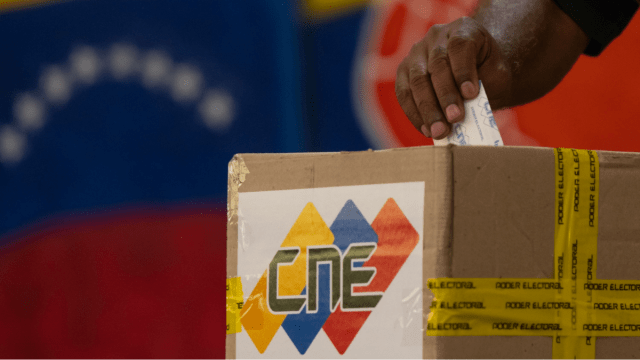
Currently the Venezuelan Electoral Observatory (OEV) is one of the civil organizations that continue to try to maintain a line of impartiality in the midst of the political diatribe that the pervades the country.
Javier A. Guaipo/ Correspondent lapatilla.com
If it were not so, the OEV probably would not have been able to carry out observation work in 13 elections including the last three presidential elections, held in 2012, 2013 and 2018.
And just because it has enough experience to be defined as a qualified voice, the director of the OEV, Luis Lander, pointed out that the election scheduled for next July 28th by the National Electoral Council (CNE) for is marked by a great uncertainty.
In his opinion, during the process which began with the announcement of the schedule, there have been some notable irregularities. Furthermore, it seems that negotiations continue between all parties involved, so he believes that nothing is yet set.
“The only thing that is certain is that, for the moment, some of the reliable pollsters say that the population’s willingness to vote remains high,” said Lander, who is one of the heads of the Non-Governmental Organization (Venezuelan Electoral Observatory) founded in 2012.
Insufficient
One of the biggest irregularities that the OEV has recorded during the current process is the low number of “points” enabled for the registration and updating of voters data in the Electoral Registry, which Lander described as insufficient.
“In 2012, for example, the period for registration was eight months. Now the deadline is less than a month with only 315 registration points, so the large number of Venezuelans who need to complete this procedure, among them around 3 million young new voters cannot do this easily,” he stated.
The expert added that the ONG has received reports that in some parts of the country there are points whose awnings lack CNE identification, which undermines the process and its correct development.
“To this we must add that those (voters) who are outside the country have a very difficult time registering or updating data. Currently there are about 100 diplomatic or consular offices abroad and in some cases they do not open,” he said.
Lander, a retired professor from the Central University of Venezuela (UCV), mentioned the case of Venezuelans living in the United States. According to him, he commented, those who are legally resident will not be able to participate in the election, since the National Government does not have an embassy or consulate in that country.
He emphasized that this type of thing is serious, since it is the restriction of the right to vote of a large number of Venezuelans.
The international community
The OEV believes that, although it is very important that there is international observation in the electoral process of July 28th, this is not a guarantee that everything will be “rosy.”
Regarding the foreign community putting pressure on the CNE to allow the participation of Corina Yoris or María Corina Machado as a candidate for the Unitary Platform, Lander does not see such a clear picture.
“Currently, the world is in turmoil. There is the war between Ukraine and Russia, for example, so today there is not the same interest (in Venezuela) as there was a couple of years ago. What we can expect is that there will be pressure to have elections that are as ‘correct’ as possible,” he expressed.
Likewise, he reiterated that they hope there will be international observation by some credible mission. This will have an impact, since it is one of the very few options there are to inhibit irregularities. “For this it is important that they come in with time and freedom of action,” he highlighted.
The mechanical engineer also recalled that an observation mission from the European Union was scheduled to arrive in the country during the second week of April. He insisted that there is certainly nothing defined regarding its participation in the elections, but stressed how valuable this news is, just as it would be if it were joined by an exploratory mission from the United Nations or the Carter Center.
Call to attention
For Lander, each step taken by both the ruling party and the opposition grouped in the Democratic Unity Roundtable (MUD) will be important on the road to the presidential election on July 28th.
However, he called on the population to check where they vote and if they were selected as polling station members, since he considers that citizen participation is vital to have a process that is as proper as possible.
“In addition, service as a table member is a duty that, if a person does not comply, may result in a fine,” he pointed out.
Notorious uncertainty
When asked about a hypothetical last-minute change in the date set for the election, whether due to negotiations between the parties or another reason, Lander pointed out that this cannot be ruled out.
“If you ask me today if the elections are going to be held on the scheduled date, I say yes. Now, if you ask me if I’m sure, I’d say no. Here we cannot take anything for granted precisely because of the uncertainty that exists. A possible change could come through agreements or if there is a call for abstention along the way,” he said.
The director of the OEV was also clear that a call for abstention by a sector of the opposition would generate frustration in the Venezuelan population, although opinion pollsters say that the readiness to vote remains high, as he reiterated.